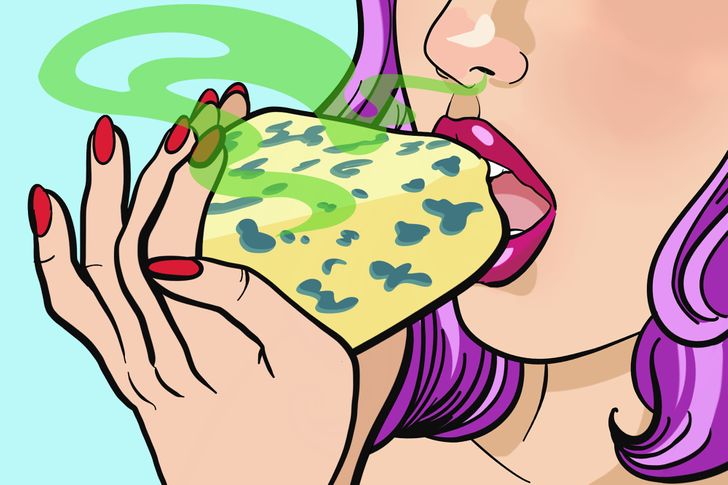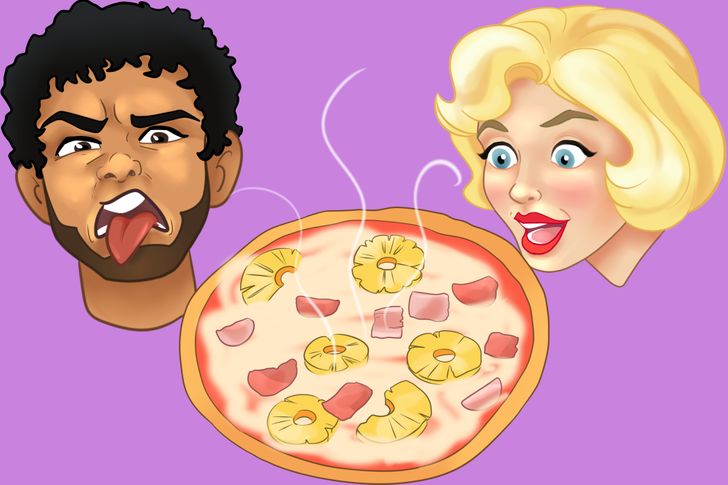“Screams Desperation,” Nicole Kidman, 56, Stuns in a Risqué Dress, But People Say It’s Not Age-Appropriate

If there’s something we all have in common, it’s a strong opinion about pineapples on pizza. All ingredients on Hawaiian pizza actually do work well together, giving us the satisfaction of tasting sweet, sour, salty, bitter, and umami. The thing is, we perceive tongue sensations very differently due to multiple factors, hence the great divide between pineapple-on-pizza haters and lovers.
Bright Side conducted research to find out what makes us love certain foods and we want to share the results with you.

Our food preferences can begin to form even before birth and are influenced by what our mother ate while she was pregnant. Inside the womb, the fetus receives fluids flavored by the mom’s dietary habits. For example, newborns whose mothers ate garlic, have less of a negative reaction to its odor and taste. So, a mom’s eating habits can increase a child’s liking of tastes or foods after birth.
We are all hardwired to basic tongue sensations: “yuck” to the sour and bitter, “yummy” to the sweet. Evolutionally speaking, it helped our ancestors to steer away from potentially poisonous foods that come with a sour taste, and toward nutritious, safe-to-eat sweet foods. But genes actually play a surprisingly small role in the matter.
At some point, kids begin refusing everything new, and if parents stop exposing them to new foods, a child will hate these foods for years to come. But if you keep offering new things, eventually they’ll like them. Kids also learn to mimic adults’ attitudes toward certain smells that are prevalent in their culture, but this doesn’t happen until much later.

Both positive and negative associations can have an impact on our view of a certain food. If we have some sweet memory connected to taste or smell, our brain releases dopamine, enhancing the pleasurable moment. On the flipside, if you got sick from some food, you will develop a natural repulsion, called a taste aversion, toward it.
Even flavors that can be considered too exotic and weird for some people tend to grow on us with time. Especially if they’re linked with some positive personal experience. The more we’re exposed to a specific taste and smell, the more associations we build with it, and the more we tend to like it.

Our food likes or dislikes can also be connected to culture. Some cultures embrace certain tastes and flavors that are regularly used because these ingredients are available in that region — like curry in Indian cuisine. Due to everything we mentioned above, if you grew up in a culture that utilizes curry, you’re more likely to enjoy its taste, as opposed to growing up in a place where it’s not used as often.
Another thing that affects tastes is our papillae — or taste buds, the receptor bumps on our tongue. Some people are “supertasters,” while others are “non-tasters” and “regular tasters.” Supertasters have more taste buds and perceive bitterness, sweetness, and sourness more intensely. This leads to a higher likelihood of an aversion to foods with a strong flavor, while there is no problem for other “tasters.”
Do you like any foods with a strong taste or smell? What’s your guilty pleasure in that department?











